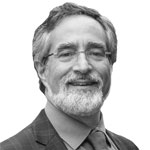What a year. The worse things got in the White House, the harder we fought for our communities here in San Francisco. And there were some victories.
BUILDING AND PRESERVING AFFORDABLE HOUSING
After SB 1069 took effect in early January, which removed some state impediments to financing and building accessory dwelling units (ADUs), I moved local implementing legislation to ensure those units would remain rent-controlled and conform to our local community planning process.
I also hosted an ADU forum with the Planning and Building Inspection Departments to educate everyday San Franciscans on my 2016 ADU legislation that created a newly streamlined process for building ADUs. We hoped to generate more applications, and it worked: In the first nine months of 2017, property owners applied to create 593 ADUs, more than double the previous year. There are now 1,046 ADUs in the pipeline, which will provide permanently affordable housing within the nooks and crannies of existing buildings throughout the city.
In July, we passed landmark legislation to protect tenants from fraudulent owner move-in (OMI) evictions, after an NBC Bay Area investigation revealed that one in four OMI evictions were abusing loopholes in the law to get tenants out of their homes.
I also authored historic reforms to the Single Room Occupancy hotel conversion ordinance, closing the long-standing loophole that has allowed thousands of units of affordable housing to be illegally converted into short-term rentals. The Board of Supervisors unanimously approved the legislation, preserving more than 19,000 units of affordable housing for our most vulnerable populations in San Francisco.
Perhaps the single biggest triumph of the past year has been the unanimous passage of the Inclusionary Affordable Housing Act, which mandated the highest affordable housing requirements in new development in the country. A joint effort by my colleagues Supervisors Jane Kim, Ahsha Safai, and London Breed, the legislation requires developers to make 25 percent of their residential construction affordable to the majority of San Franciscans, including a new tier for middle-income families. It was a marathon of wonky land-use legislating and negotiating, but the hard work will pay off when these units finally come online.
GOVERNMENT ACCOUNTABILITY
A year’s worth of investigative hearings revealed serious flaws with the approval process for the Millennium Tower at 301 Mission Street, including revelations the developer knew the building was settling differentially long before they sold their first million-dollar unit.
60 Minutes followed up with an exposé, “The Leaning Tower of San Francisco,” which aired around the world, pulling back the veil on widespread industry pressure to expedite downtown development when hundreds of millions of dollars are at stake — even at the cost of the safety of the general public.
I also took on the issue of 911 call center response times, after a major power outage in April revealed serious deficiencies in staffing and citywide coordination. In addition to a series of investigative hearings, which included the Department of Emergency Management (DEM), I legislated a $250,000 grant to DEM to launch the “Make the Right Call” campaign in the hope of curbing the 206,000 accidental calls the center receives annually. Recruiting, retention, and oversight reforms have also followed, and as of September 2017, the call center had met the national standard of answering all 911 calls within 10 seconds, 90 percent of the time (for the first time in five years).
I passed landmark campaign finance reforms, fought the Trump administration through my work on the California Coastal Commission, and am placing a charter amendment on the June 2018 ballot to force the issue of divestment from fossil fuels. I was also able to negotiate direct payments to impacted merchants in Chinatown after ongoing delays to the Central Subway project began taking their toll. Working with S.F. Public Works, we are also redesigning the JCDecaux toilet and information kiosks through a true community process.
Finally, I am working with Public Works and the Department of the Environment to reallocate cleaning resources more effectively to neighborhoods that don’t enjoy the benefits of Community Benefit Districts, Invest In Neighborhoods programming, or well-organized neighborhood associations. I’ve introduced a $300,000 supplemental appropriation to pilot additional steam-cleaning resources and litter abatement in our most neglected neighborhoods.
FAREWELLS AND NEW BEGINNINGS
Also, 2017 was the year we lost our mayor, suddenly and tragically on the eve of our last Board of Supervisors meeting. It has certainly cast a pallor of sadness over our collective work, but we are pushing forward to honor Mayor Lee’s legacy with progress on the many issues he championed.
We also welcome a new member to our team, Calvin Yan, who took over for Beth Rubenstein in our office. If you have not had a chance to meet him yet, please stop by the office and introduce yourself.
We have a lot of work to do together in 2018 — but it helps to reflect on where we’ve been. I continue to be grateful for the opportunity to serve this community — and I hope I make you proud when all is said and done.
Onward to a year of growth and positive change!




